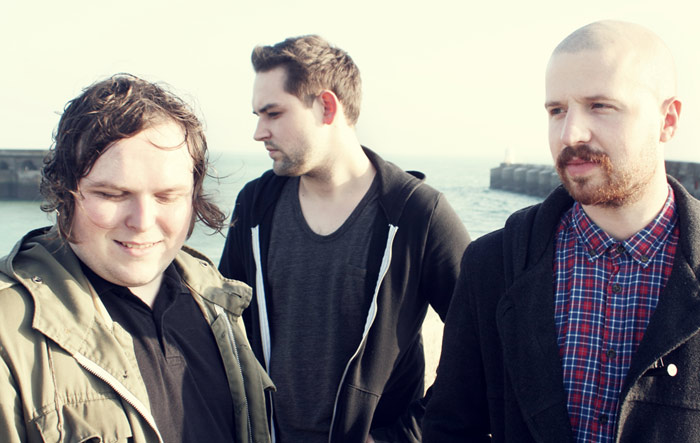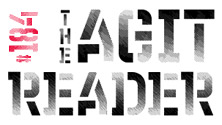
Fine Tuning
by Stephen Slaybaugh
After first emerging in 2007 with their full-length debut, Fourteen Autumns & Fifteen Winters, a folk-tinged take on brooding rock anthems, Glaswegian outfit The Twilight Sad forged a tsunami of a follow-up with 2009’s Forget the Night Ahead. This time singer James Graham’s sullen revelations (sung in an endearingly thick Scottish brogue) were blanketed in thick layers of Andy MacFarlane’s clanging guitar. The walls of sound the band had created would have made Kevin Shields proud and rightfully turned their fair share of ears.
It’s a surprise then that for their third album, No One Can Never Know, The Twilight Sad has eschewed such cacophonous emanations for a moodier mix of synths and relatively clean guitar tones. With “anti-producer” Andrew Weatherall (best known for his remix work with artists like Primal Scream and Saint Etienne) lending a helping hand, the overall effect of No One is no less arresting than that of its predecessors. Indeed, songs like “Dead City” and “Don’t Move” convey a desultory tone every bit as jarring as the assault of guitars found on the band’s previous work, and the album proves to be an exciting addition to The Twilight Sad pantheon. I caught up over the phone with Graham who had just returned home from practicing for the band’s upcoming tour, which after a few UK dates, hits our shores later this month.
I know that you have said that you think the new record still sounds like the band, but it’s obvious that the guitar sound is dramatically different. Were you worried at all about alienating people who already liked the band?
James Graham: To begin with, we never spoke to each other about changing anything—we just got on with the songwriting. We just went with the way things were naturally progressing. We write for ourselves—we’re quite selfish in that way. We make music that interests us, and then if it interests any other people, that’s amazing. We don’t really think about what people want from us. We just want to do what interests us as a band and use the sounds that have been interesting to us over the past few years.
Once you’ve finished the record, then you can start to think about how other people are going to perceive it. I mean, you want everyone to like it, but you can’t please everybody. And sometimes, you’re damned if you do and you’re damned if you don’t. If we’d just repeated what we’d done on the second or the first album, it would have been boring for us, and after awhile, we’d probably just call it a day because we’d have gone as far as we can go. Even if if we tried to adopt some of the older sounds on this new record, it would have felt like a cop out, like we didn’t trust our own judgement. You want everyone to like what you’re doing, but you have to be 100% happy yourself.
You were saying that it was a natural progression, but I was wondering if once you hooked up with Andrew Weatherall, if given his leanings, he pushed you in that direction.
JG: Not really. When we were writing the demos for the album, we decided it might be a good idea to work with a producer, so we got in contact with a number of people whose work we really liked. Andrew got back to us right away and said he was loving the demos. We met up with him in Glasgow, and he gave us a playlist of songs and sounds that he felt were like what we were going to go for with the album. It was exactly like what we were thinking.
Before we went down to London, we did a lot of preproduction on the album. We got down there and got started, and after a couple of days, Andrew came to the studio. He said that we’d basically done everything that he would have told us to do anyway. We, as a band, produced the album ourselves, but it was great to have Andrew there as a reference point and somebody to bounce ideas off of, keep us on the right track, and give us a boost of confidence.
Aside from the Cut Copy remix he did last year, I hadn’t heard his name too much. Has he been that active lately or were you bringing him out off retirement?
JG: He deejays a lot and does a lot of remixes, but he produced that Fuck Buttons album, Tarot Sport, and he helped mix the War Paint album as well. He only gets involved with things that interest him.
Was taking this approach at all a reaction to the last album? After having those huge guitars, did you feel like you needed to do something dramatically different?
JG: Yes and no. When the band started out, we wanted to make sure that every album was different, and we never wanted to repeat ourselves. For anybody who misses the whole big wall of guitars that were on the first and second record... I wouldn’t want to hear that from our band again if I was a fan because ultimately what you can do is go back and listen to those albums. It was an element of the band that we felt we took to the limit. Andy has developed his guitar sound as well and wanted to move forward and not repeat what he had done on the past albums. It’s a pretty intense record as well, and live it’s just as noisy as the previous albums. The strongest element for us is the songwriting.
I almost feel like the synths take the place of some of those guitars...
JG: I think they do. It’s the same kind of soundscape that you would get from the guitars.
In the interviews you did for Forget the Night Ahead, you said that that album was inspired by a rough stretch you went through. As this one isn’t exactly cheery, I was wondering if you had similar events in your life and if it takes something traumatic to spur you to write.
JG: You are right that this record isn’t exactly a barrel of laughs. On the first record, there was an observational tone. Every album, every song I’ve written has been written with a purpose. I’d never write a song just because Andy has given me some music. It’s because I had something to write about. The first album was about people I know—my friends, my family—and things that have happened to them and where we live. The second was more personal and more about myself and the hard thing I went through. This one, I feel like I’ve gone back to the observational style. Every song is still very personal, but it’s more observational of people I know and stories of things that have happened. If I’m being honest, I don’t think I could write a happy song. I just don’t find that kind of thing interesting. The darker side is much more interesting because you can reflect on times in your life when you’ve not been happy and be glad that you’re not in that state anymore. Nobody wants to hear somebody going on about how good their life is and how everything’s brilliant, especially since it’s just not true. Everybody goes through their ups and downs, and I just choose to write about the downs more than the ups. But otherwise, I’m quite an upbeat person. I don’t think I’m totally miserable. I get that side out of me playing music, but the rest of the time, I like to think I’m an approachable person.
Not having those big guitars to kind of hide behind, did you feel more pressure as far as your singing and your lyrics?
JG: I can hear myself now, which is pretty good. But really, we always make sure we have a basic song there first. With every song, we only move forward with it if there’s a good basis there. I’m definitely not one to hide behind anything because I feel the songs are special and I’d like people to hear what I’m singing about.
